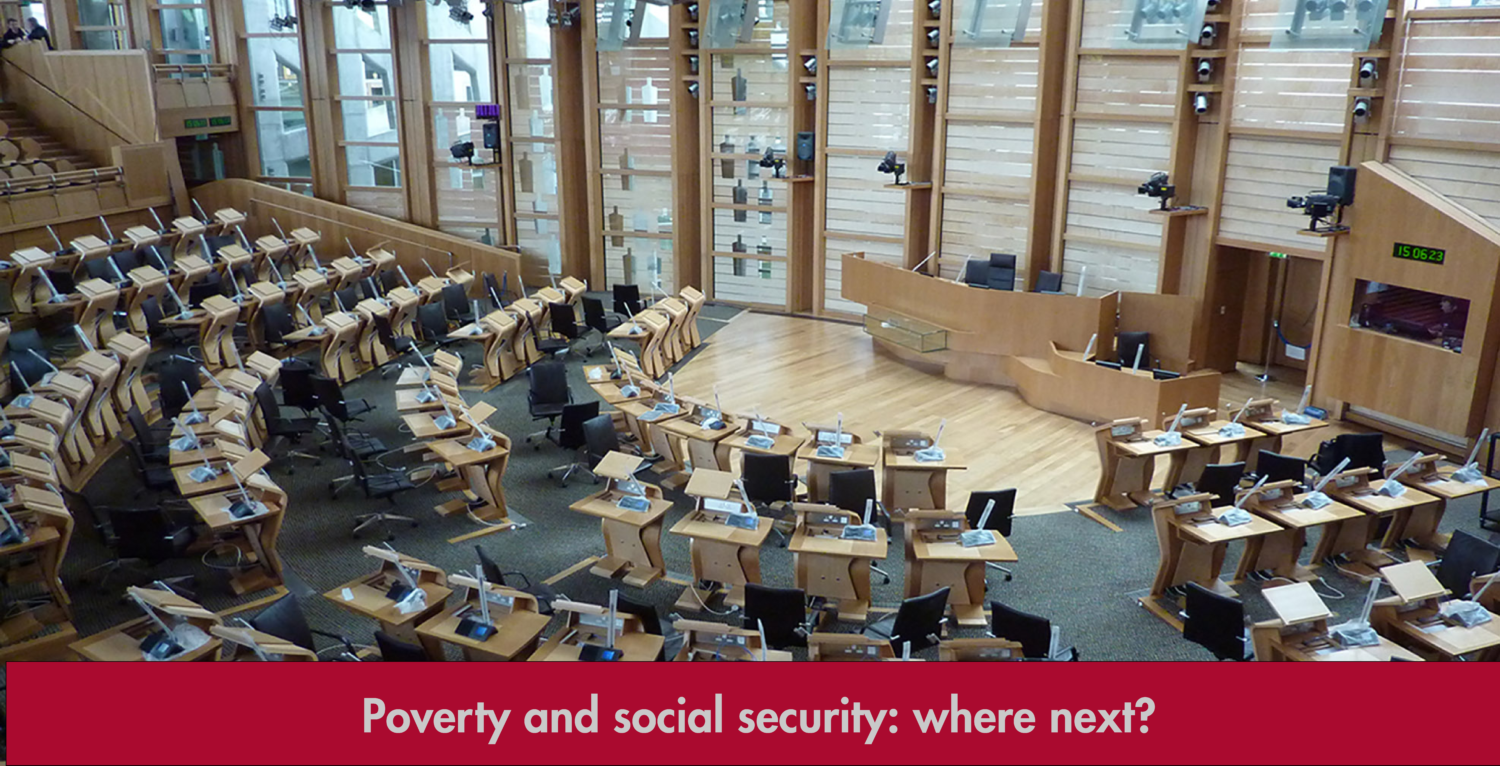Breaking ground
Scotland’s new social security system teaches Westminster not only the value of dignity and respect, but that it’s time for a new kind of politics, writes Sally Witcher.
How would you design a new social security system from scratch? Not an opportunity that comes along every day, so probably not a question many have devoted time to seriously considering. However, that was the challenge in Scotland confronting the Scottish government, the parliament, civil society and people who will use the new system, all of whom have been closely involved in responding. And while the subject for this blog is what the new Scottish system can teach the UK government’s social security system, the learning has so far been in the other direction and have exclusively concerned what not to do.
Under the Scotland Act 2016, Westminster devolved 11 benefits to the Scottish parliament, notably in areas of disability and carers’ benefits.
Within devolved areas, the Scottish parliament can create additional benefits and replace existing ones. They can also top-up payments to reserved benefits. The total devolved budget accounts for a mere 15 per cent of Scotland’s total social security spend – the remaining 85 per cent of benefits spend in Scotland continue to be delivered by the UK government. So it is not much – but, in a small country with limited powers, it’s what you do with them that counts.
The Social Security (Scotland) Act 2018 is now in place and a delivery agency has been established to carry out assessments and administration. Experience panels – 2,400 volunteers with experience of using benefits to be devolved – are involved in developing the new system. The delivery of new benefits is getting off the ground. But these are early days.
Against the dark shadow cast over many lives by the appalling UK benefits system, the Social Security (Scotland) Act 2018 shines as a beacon of hope. The system begins with a set of governing principles. Far from the language of ‘welfare dependency’ and ‘safety nets’, the Scottish system positions social security as “an investment in the people of Scotland”. Others affirm social security as a human right and that dignity is to be at the heart of the system.
Social security delivery is a public service – the system will contribute to reducing poverty and will be designed by the people of Scotland. Provisions include a duty on ministers to promote take-up, rights to independent advocacy, and inclusive communications. Opportunities will be continuously sought to improve it in ways which put users’ needs first and advance equality and non-discrimination. Finally, the system will be efficient and deliver value for money.
It could be argued (and I have) that such principles hold good for public services in general. It could also be argued that they are too good to be true. Time will tell. Too often excellent policies never cross from policy into delivery, and thence into positive impact on people’s lives. Principles on the face of an ‘Act’ mean nothing if they do not accomplish that transition.
To start that process, a highly innovative policymaking model was adopted. At its centre was a ‘core group’ of diverse people with lived experiences of claiming benefits, brought together to co-produce a charter, describing what people engaging with the system should expect. Involved too were a plethora of third sector organisations, academics and assorted stakeholders.
It is not just that the charter says how dignity and respect are to be delivered, but the way the charter was developed was rooted in these qualities:
“It has been one of the greatest honours of my life to be included in the group who wrote [the charter] … Session after session, we’d see our words, fears and hopes take form … I will never be able to describe how important it is to us to be listened to, and to be respected … People came out crying, because it was the first time for many of us that we’d been believed.” – Charter core group participant on Twitter
I can hear the scoffing. “Charters are nothing more than a worthless collection of warm words”. This one is different. The Act compels Scottish ministers to report annually to parliament on what they have done to meet expectations in the charter. The new Scottish commission on social security also has a key role to play – independent of both ministers and parliament, the commission will scrutinise regulations and report back to Holyrood on whether expectations in the charter are being met.
Sceptics say “co-production is just the latest fad”. Done well it is anything but. Yes, bringing together people with diverse perspectives and roles, to work as equal partners can be difficult and challenging. But combining different forms of knowledge and expertise to thoroughly test out propositions can lead to more robust outcomes, greater ownership and improved mutual understanding.
There is still much to do and there will always be a difficult balance to strike between speed and caution. It is appropriate to question whether the one struck is right, as recently debated in the Scottish parliament. No one seeing people suffer at the hands of the Department for Work and Pensions would want this to endure longer than absolutely necessary. Yet, to rush pell-mell towards the promised land risks falling and burial under an avalanche of dashed hopes and unmet expectations.
The key lesson from Scotland is that there is nothing inevitable about the ‘human catastrophe’[i] created by Westminster’s benefits policy and the damaging way it is implemented. Moreover, the development of the charter suggests it’s not just about being ‘people centred’ but ‘people led’; not about designing a system ‘alongside’ service users but their active participation in designing it; not about designing a system ‘around’ real lived experience but placing it at the core, right through to the peripheries. Because if policy does not achieve positive change to people’s lives, as defined by the people living those lives, then we are all wasting our time.
Maybe there are other lessons. As ever more cracks appear in the Westminster political paradigm under the mounting pressures of Brexit, it seems remarkable that the 2018 Social Security Act and the charter were unanimously approved by the Scottish parliament. This may partly reflect the response to another question: “How would you design a new parliament from scratch?”. That answer featured powerful backbench cross-party committees, with a critical role to play in the legislative process. Not that political differences are necessarily less pronounced or debates less combative than elsewhere. However a greater emphasis on cross-party working and more backbench power to hold ministers to account perhaps shifts the political dynamics, towards something more collaborative – dare I suggest co-productive. Perhaps consensus is not necessarily a sign of one side’s political weakness. Perhaps it can be a sign of collective political maturity and strength.
There is much talk – and stark, irrefutable evidence – of the need for a new kind of politics. Perhaps the experiences of establishing the new social security system in Scotland provide just a few glimpses of what this might be.
[i] Term used by the Chair of the UN Committee on the Rights of Persons with Disabilities at the end of their examination of the UK Government’s performance on implementing disabled peoples’ human rights – but more widely applicable.

